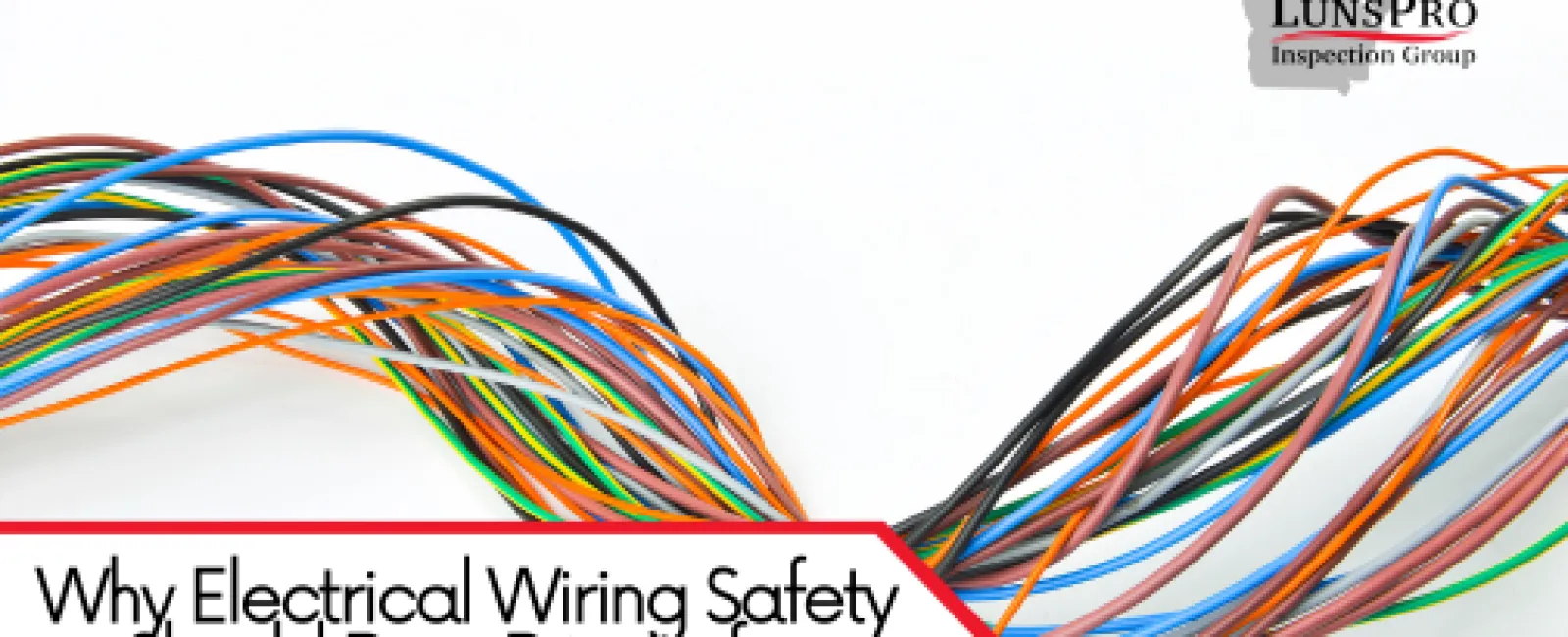When it comes to homeownership, some of the most critical systems are also the ones that are least visible. Electrical wiring runs behind walls, through attics, and under floors, quietly powering everything from your kitchen appliances to your HVAC system. Because it's out of sight, wiring often goes out of mind—until something goes wrong.
During Southeastern home inspections, certified inspectors often encounter situations that highlight why electrical safety should never be overlooked. One example is the discovery of improvised or non-standard fixes, such as counterweights added to wiring. While these may be intended as "solutions," they often signal underlying issues that could compromise safety and efficiency. At LunsPro Inspection Group, our role is to ensure that homeowners in Georgia and the Carolinas are informed, empowered, and protected when it comes to these unseen but vital systems.
Understanding the Basics of Residential Wiring
Electrical wiring is the circulatory system of your home. It distributes power from the main panel to outlets, switches, lights, and appliances. Modern wiring must meet strict codes designed to prevent hazards like fire, shock, and power failures. For homeowners, understanding how wiring works—even at a basic level—can make it easier to appreciate why professional inspections are so important.
The main components include:
-
Service entrance cables, which bring power into the home.
-
Branch circuits, which distribute electricity to specific rooms or devices.
-
Breakers and fuses, which protect circuits from overload.
-
Grounding and bonding, which direct stray currents safely away from people and property.
When any part of this system is modified incorrectly or allowed to deteriorate, risks increase significantly.
What Does a Counterweight on Wiring Mean?
The use of counterweights or makeshift supports on wiring is not a standard practice. In fact, it often points to one of several underlying conditions:
-
Unsupported Wires - Electrical wires must be properly secured using approved fasteners and supports. A counterweight suggests the wire may be sagging or improperly anchored.
-
Improvised Repairs - Homeowners or unlicensed workers sometimes attempt quick fixes rather than addressing the root cause of a wiring issue.
-
Potential Overstrain - Added weight or tension on a wire can stress the connections and insulation, increasing the risk of overheating or damage.
In short, if an inspector discovers a counterweight on wiring, it is usually a red flag that further evaluation by a licensed electrician is needed.
Risks Associated with Improper Electrical Modifications
Electrical systems are designed with safety as the highest priority. Deviations from proper installation practices can create hazards that aren't always visible right away. Risks of improper wiring modifications include:
-
Fire Hazards: Faulty wiring is one of the leading causes of house fires. Overheating wires, poor connections, or damaged insulation all increase this risk.
-
Shock Hazards: Improper grounding or exposed wires can cause dangerous electric shocks.
-
Equipment Damage: Sensitive appliances and electronics may be damaged by irregular currents caused by wiring issues.
-
Code Violations: Non-standard fixes rarely comply with electrical codes. This can create problems during resale or with insurance coverage.
These risks make it clear why electrical safety should be prioritized and why any questionable modifications should be corrected promptly.
How Inspections Identify Electrical Issues
Southeastern home inspections include a detailed review of the electrical system, from the main service panel to visible wiring and outlets. At LunsPro Inspection Group, our certified inspectors look for:
-
Proper grounding and bonding.
-
Evidence of overheating, arcing, or corrosion.
-
Correct breaker sizing for connected circuits.
-
Safe wire support and routing.
-
Signs of amateur modifications, such as counterweights or makeshift splices.
While inspectors don't dismantle walls or conduct invasive testing, their trained eye can spot warning signs that point to larger issues. Recommendations for follow-up with a licensed electrician are made whenever concerns arise.
Why Electrical Issues Are Common in the Southeast
Homeowners in Georgia and the Carolinas face unique challenges related to electrical systems. Many houses in the region were built decades ago, and older wiring often doesn't meet today's safety standards. Additions and renovations may have introduced unpermitted or do-it-yourself electrical work. The humid climate can also accelerate corrosion, while pests such as squirrels and rodents may chew through insulation in attics or crawlspaces.
These factors combine to make electrical concerns a frequent finding during Southeastern residential and commercial inspections. Even homes that appear modern and well-maintained can hide wiring issues that need professional attention.
The Importance of Professional Follow-Up
If an inspection identifies a questionable electrical condition, homeowners should never attempt to correct it on their own unless they are licensed electricians. Electrical work requires specialized knowledge, tools, and adherence to strict codes. Professional electricians not only resolve the immediate issue but also ensure that the entire system is safe and compliant.
In the case of counterweighted wires or sagging circuits, a contractor can:
-
Secure wiring with proper supports.
-
Check for insulation damage.
-
Verify load calculations and breaker compatibility.
-
Bring any non-compliant installations up to code.
Prompt professional follow-up protects your investment and, more importantly, your family's safety.
Preventive Tips for Homeowners
While most electrical issues require professional evaluation, homeowners can take steps to reduce risks and maintain safe systems:
-
Schedule Regular Inspections - Incorporate electrical checks into routine Southeastern home inspections, especially before buying or selling.
-
Avoid DIY Fixes - Even small modifications, like replacing a light fixture, can be risky without proper knowledge.
-
Watch for Warning Signs - Flickering lights, frequently tripped breakers, or warm outlets may indicate underlying wiring problems.
-
Keep Wiring Clear - Ensure wires in basements, crawlspaces, or attics are free from clutter, moisture, or pest access.
-
Update Outdated Systems - Homes with knob-and-tube wiring, aluminum wiring, or undersized panels should be upgraded to modern standards.
Electrical Safety and Property Value
Beyond safety, electrical integrity impacts your home's value. Buyers in Georgia and the Carolinas increasingly expect homes to be updated and compliant with current codes. During a sale, unresolved electrical issues often lead to delays, price reductions, or even failed deals. By addressing problems early through inspections and repairs, homeowners protect both their property value and their reputation with buyers.
This is another reason why Southeastern residential and commercial inspections from LunsPro Inspection Group are a wise investment. They not only safeguard families but also strengthen the financial foundation of homeownership.
Electrical systems are the lifeblood of modern homes, but their hidden nature means that issues often go unnoticed until something serious happens. The discovery of a counterweight on wiring may seem minor, but it underscores a much larger truth: improvised fixes or unsupported systems can compromise safety and efficiency. For homeowners in Georgia and the Carolinas, vigilance and professional inspections are essential to maintaining a safe, functional, and valuable property.
At LunsPro Inspection Group, our mission is to bring clarity to hidden risks through comprehensive Southeastern home inspections. From electrical systems to roofing and plumbing, our certified inspectors provide the insights homeowners need to make informed decisions. By acting on these findings and seeking professional follow-up when necessary, you can protect your home, your family, and your investment for years to come.

